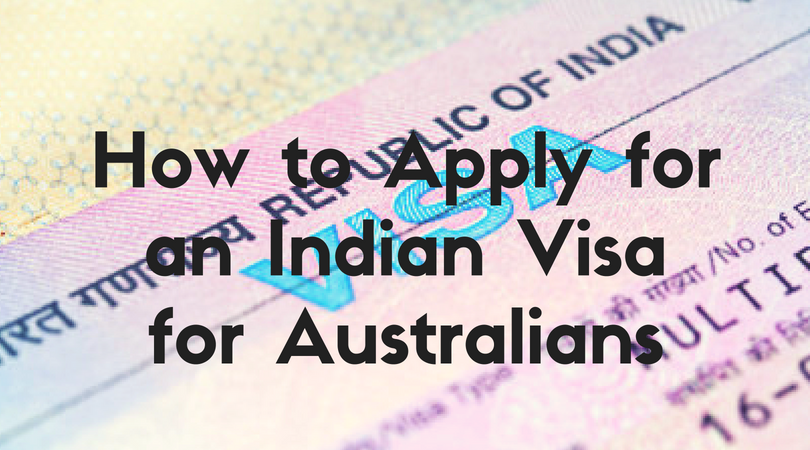Business
Indian Visa for Australian Citizens: An In-depth Analysis
Published
7 months agoon
By
John
Introduction:
As international travel and global connectivity continue to expand, it is crucial for Graduate School students to possess comprehensive knowledge about visa requirements. In this essay, we will explore the intricacies of the Indian visa for Australian citizens. By examining the various visa types, application procedures, and necessary documents, this analysis aims to equip Graduate School students with a thorough understanding of the Indian visa system.
Visa Types:
The Indian visa system offers multiple categories catering to different purposes of travel. Australian citizens have access to various visa types such as Tourist visa, Business visa, Employment visa, Student visa, and Medical visa. Each visa type carries specific conditions, duration, and requirements, aligning with the purpose of the respective visit. To enhance their travel experience and avoid unnecessary complications, Graduate School students should meticulously prepare a pre-departure checklist. This checklist may include passport validity, vaccination requirements, foreign exchange provisions, travel insurance, and local emergency contacts. Such thorough preparation contributes to an organized and worry-free travel experience in India.
Application Procedure:
To initiate the visa application process, Australian citizens can electronically submit their application through the Indian government’s online portal. The application requires personal, passport, and contact details, along with the purpose and duration of the visit. It is essential for Graduate School students to comprehend the procedural requirements accurately to avoid any mistakes or delays during the application process.
Documentation Requirements:
Indian visa applications trapstar tracksuitstypically require a set of specific documents. These documents include a valid passport, recent passport-sized photographs, proof of travel itinerary or invitation letter from an Indian entity, financial statements indicating adequate funds, and supporting documents specific to the chosen visa category. Graduate School students must meticulously organize and present these documents to ensure a smooth visa application process.
Visa Processing Time:
Understanding the estimated processing time for an Indian visa is crucial for Graduate School students to plan their travel accordingly. The processing time may vary based on the visa category and the volume of applications received. Typically, a Tourist visa may require 2-5 working days of processing, while other visa categories might involve a longer waiting period. Understanding the limitations and permissible activities under an Indian visa is crucial for Graduate School students. Each visa type carries specific restrictions regarding employment opportunities, engagement in business activities, or participation in educational programs. By adhering to these limitations, Graduate School students can ensure a lawful and hassle-free stay in India.
Visa Fees and Validity:
Graduate School students must familiarize themselves with the visa fee structure to ensure cost estimates are accurate. Indian visa fees are subject to change and vary depending on the type and duration of the visa requested. Additionally INDIAN VISA PORTS OF EXIT, visa validity also differs based on the visa type, ranging from a few months to several years. Being aware of these details is essential for Graduate School students planning an extended stay or multiple visits to India.
Visa Extensions and Renewal:
If Graduate School students wish to extend their stay in India beyond the initially granted visa period, it is crucial to understand the extension and renewal processes. The Indian visa system allows for extensions under specific circumstances; however, Graduate School students must adhere to the prescribed guidelines and submit the necessary documents within the stipulated time frame.
Visa Restrictions and Permissible Activities:
Understanding the limitations and permissible activities under an Indian visa is crucial for Graduate School students. Each visa type carries specific restrictions regarding employment opportunities, engagement in business activities, or participation in educational programs. By adhering to these limitations, Graduate School students can ensure a lawful and hassle-free stay in India.
Pre-Departure Checklist and Travel Tips:
To enhance their travel experience and avoid unnecessary complications, Graduate School students should meticulously prepare a pre-departure checklist. This checklist may include passport validity, vaccination requirements, foreign exchange provisions, travel insurance, and local emergency contacts. Such thorough preparation contributes to an organized and worry-free travel experience in India.
Conclusion:
As Graduate School students prepare for international academic endeavors or research opportunities, possessing a comprehensive understanding of the Indian visa system is essential. This analysis has explored the visa types, application procedures, necessary documents, fees, validity, restrictions, and travel tips for Australian citizens. By assimilating this information, Graduate School students can confidently navigate the Indian visa process, ensuring a smooth transition into their academic pursuits in India.
You may like

Navigating the Indian Visa Process for UK and Canadian Citizens

Navigating the Indian Business Visa Application: Common Mistakes to Avoid

Navigating the Indian Visa Process: A Guide for Vietnamese and Zambian Citizens

Navigating the Indian Visa Process: A Guide for Vietnamese and Zambian Citizens

Navigating Visa Requirements: India for French Citizens and Canada for German Citizens

Guide to Obtaining a New Zealand Visa from Switzerland

Complete Guide to New Zealand Visa for Spanish Citizens

SAUDI ARABIA BUSINESS VISA RENEWAL

Indian Visa for Cruise Passengers

NEW ZEALAND VISA FOR CANADIAN CITIZENS

Navigating the Indian Visa Process for UK and Canadian Citizens

Navigating the Indian Business Visa Application: Common Mistakes to Avoid

Navigating the Indian Visa Process: A Guide for Vietnamese and Zambian Citizens

Navigating the Indian Visa Process: A Guide for Vietnamese and Zambian Citizens



